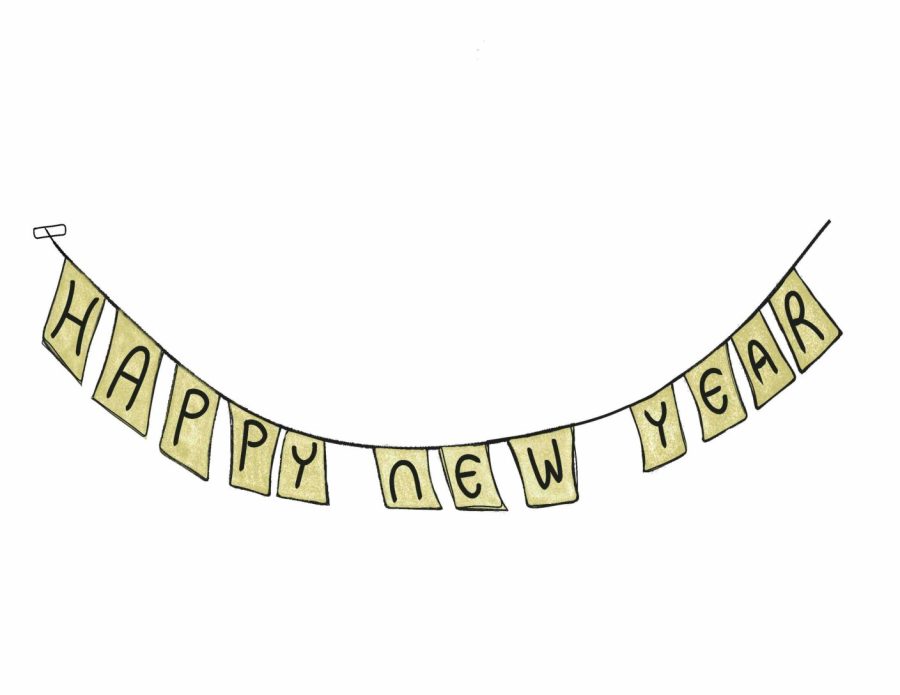New Year’s Resolutions
Mar 3, 2022
As a teenager, one of my favorite times of the year is the holidays. Not because of Christmas, New Year’s Eve, or the holiday spirit. As much as I like all of those, I get excited each year because every January at Tamalpais High School, I get to watch vast amounts of people buy into the same short-lived conspiracy that is New Year’s resolutions.
Since returning to school, I’ve seen this phenomenon firsthand. More and more kids complaining about their “sore legs” or aching muscles, subtle grievances hinting at their recent ventures to the gym. Just the other morning before class, I watched a student limp his way to his car, clutching his shoulder in pain. He had just hit the weight room. It’s not only that: you start seeing an increasing amount of selfies taking place at the gym, a rise in water bottles being used, and Tupperware filled with salads at lunch.
Apparently, New Year’s resolutions have been around for over 4,000 years, according to History. So yeah, that’s right—for one whole week, Babylonians would put down their torches and stop inventing the math we now have to learn. Think about how much better school would be if resolutions are actually seen through to the end.
Those who partake in New Year’s resolutions and those who don’t create polarizing dividers in our society. There are the realists who are fully self-aware and confident in their levels of determination. “I think they’re fake … I’ve never actually met someone that follows through on them,” Tam junior Lucy Hexamer said. “I always make a list, but I know none of it’s going to end up happening.”
Then there are the optimists, who have a beautiful week of solid follow-through that slowly fades away as the flame dies. Tam junior Gavan Smeltzer is a prime example. “Mine was to show up to class on time — that didn’t work out,” Smeltzer said. Regardless of which group you may fall in with, New Year’s resolutions are like your parents saying they’re doing Dry January—unlikely to work out, but worth a shot.
I am not against self-improvement. I like self-improvement— when it’s the off-season. Nonetheless, I feel like a resolution isn’t truly good for yourself if it involves seeking praise on social media, which seems to be a large part of resolutions nowadays. Emily, you can’t make it three days without your Juul. What makes you believe you’re going to drink two liters of water every day for the rest of the year? It actually seems counteractive— the more you get your dopamine from social media, the more tied up you get, and you become less connected to yourself and real life. We’ve all heard enough adults tell us how addicted we are to our phones, but there is truth to that. If you put something on social media that has occupied your mind for a lengthy period of time, or even little personal progress that is significant to you, and expect the same attention from someone who will spend maybe five seconds consuming it, you’re not exactly setting yourself up for success.♦




